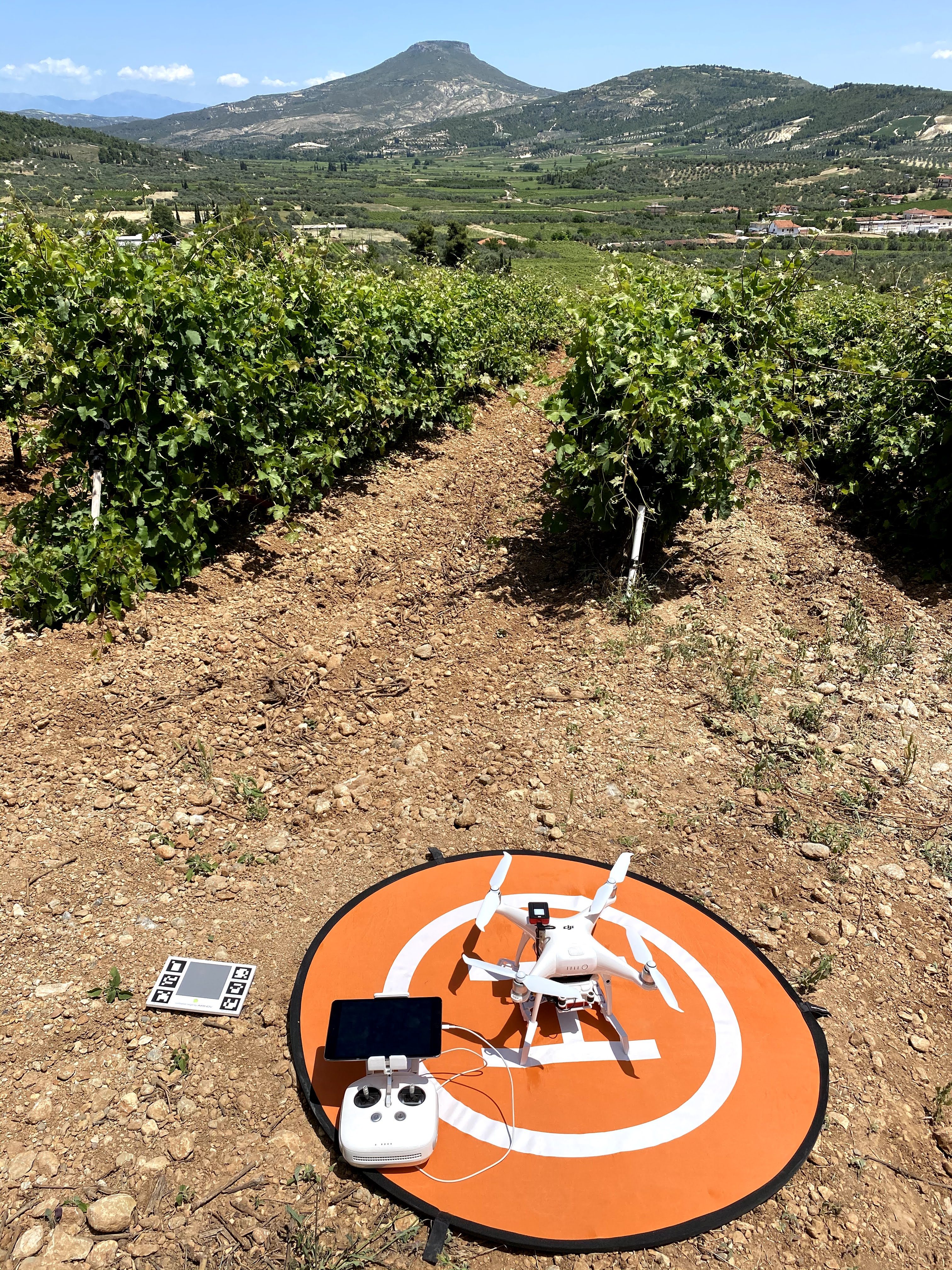In an age where technology is transforming industries worldwide, the agricultural sector is no exception. Across Europe, farmers are embracing digital solutions to optimise their practices, improve sustainability, and stay competitive. In the Balkan region, the Agricultural University of Athens (AUA) is leading the charge by coordinating an observatory under the 4Growth project, dedicated to understanding how digital technologies are being adopted by farmers and agricultural cooperatives. Through this observatory, AUA aims to uncover the potential for digital tools in agriculture and to overcome the unique challenges that smallholder farms in Greece and the Balkans face.
With a longstanding commitment to advancing sustainable agriculture, AUA is well-suited to lead this observatory, backed by its extensive experience in precision agriculture and digital transformation projects. AUA has spearheaded notable initiatives such as Smart-AKIS, ROBS4CROPS, SmartAgriHubs, and IOF2020, providing the institution with a deep understanding of both the technological and socio-economic factors that influence technology uptake in smallholder farming. AUA’s partnerships with local cooperatives further strengthen its role, allowing the observatory to work closely with farmers who are directly impacted by these innovations.

Additionally, having in the country one more observatory, the Laboratory of Forest Management and Remote Sensing (AUTH/FMRS) at the Aristotle University of Thessaloniki, enhances the project’s scope and expertise. AUTH/FMRS brings specialised knowledge in forestry and remote sensing, which is critical for monitoring digitalisation trends in the region’s diverse landscapes. Together in Greece, AUA and AUTH/FMRS bring a unique blend of agricultural and forestry expertise, established networks, and hands-on experience, positioning the observatory as a leader in digitalising smallholder farms and supporting sustainable development across the Balkans.
Greece, and the Balkan region as a whole, faces several significant barriers to digitalisation in agriculture. Statistics indicate that over 70% of farms in Greece and neighbouring Balkan countries are small-scale, often family-run operations, which makes it challenging for these farmers to afford advanced technologies like precision agriculture tools or IoT sensors. Additionally, European Commission data shows that around 30-40% of farmers in the region have low levels of digital literacy, limiting their ability to adopt and benefit from these innovations. Economic constraints further exacerbate these challenges, as many smallholders lack access to financial support or incentives to invest in digital tools.
The issues of small farm sizes, limited digital literacy, and economic constraints are prevalent across the Balkan region, though they may vary slightly in severity from country to country. For example, while digital literacy and access to technology in Greece face similar challenges as those in North Macedonia and Albania, other countries, such as Slovenia, may have a somewhat higher level of digital adoption in agriculture. However, the overall need for adaptable and scalable technological solutions remains a common theme.
Despite these barriers, the observatory is committed to working closely with cooperatives like Pegasus Agrifood Coop and Nileas Cooperative, alongside research institutions like ELGO-DIMITRA, to gather robust data on digitalisation uptake. This collaboration aims to provide a nuanced understanding of the digitalisation landscape and to identify tailored solutions that address the unique challenges faced by smallholder farmers across Greece and the broader Balkan region.
Data collection will be a crucial part of this initiative. The AUA observatory will employ a range of methods, including surveys, interviews, and field trials, to gather information on the adoption of digital technologies. Through the use of the Digital Agriculture Uptake Grid, AUA will ensure that this data is consistent and unbiased, capturing insights on the benefits, barriers, and patterns of digital technology use across the region. By combining on-the-ground data with advanced digital tools such as IoT devices and satellite monitoring, the observatory will gain a comprehensive understanding of how farmers in Greece and the Balkans are incorporating technology into their operations.
The ultimate goal of the AUA observatory is to empower farmers by improving digital literacy and providing them with the tools and knowledge they need to enhance the sustainability and efficiency of their farms. To achieve this, the observatory will organise a series of hands-on training sessions, workshops, and demonstration events tailored to the specific needs of smallholder farmers. These sessions will cover topics such as the use of precision agriculture tools, IoT sensors, and data management systems, aiming to simplify complex technologies and make them accessible to all skill levels. Additionally, AUA will work closely with local cooperatives, like Pegasus Agrifood Coop and Nileas Cooperative, to ensure these training initiatives reach a wider audience within the farming community.
By the end of the 4Growth project, the observatory will have developed best practices for technology adoption that can be applied across the region. Furthermore, insights gained from these activities will feed into policy recommendations aimed at encouraging the broader uptake of digital tools in agriculture. Through these efforts, the observatory hopes to drive long-term, sustainable change in the sector, supporting the growth of both individual farmers and the broader agricultural community in Greece and beyond.
Cover image: Data collection in a vineyard in Nemea, Greece, using advanced digital sensors: vehicle-mounted SpectroSense+GPS and CropCircle sensors measure canopy reflectance, complemented by an on-site weather station (Credit: Agricultural University of Athens)
Intrigued by our work and eager to assess the adoption of digital tools and help shape the future of agriculture and forestry? Don’t forget to share your insights through our survey: https://wur.az1.qualtrics.com/jfe/form/SV_3ZYlHCXhpiDJyyq